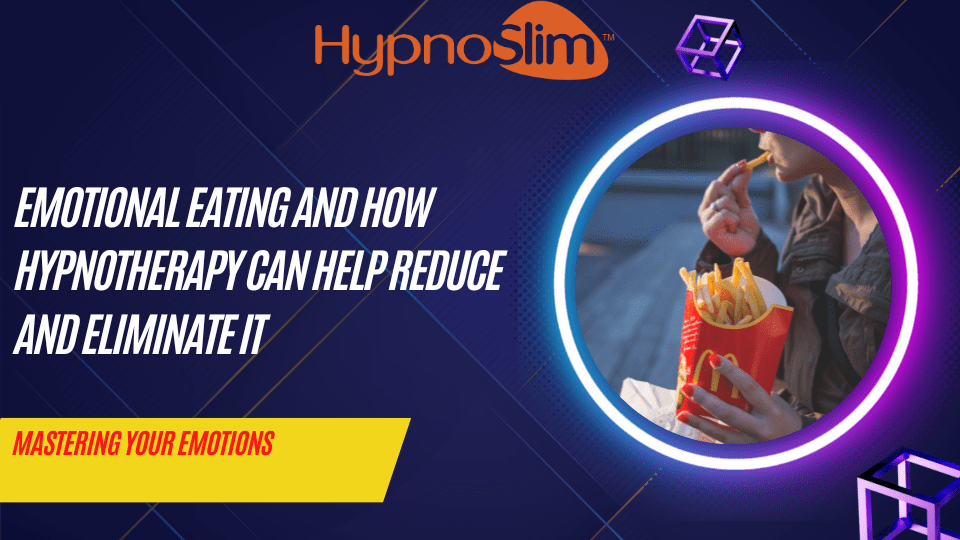No products in the basket.
Weight Loss
Emotional Eating and How Hypnotherapy Can Help Reduce and Eliminate It
At times, we may find ourselves eating not because we are hungry, but rather to alleviate stress, anxiety, boredom, or even sadness. This phenomenon is known as emotional eating and can lead to unhealthy eating habits, weight gain, and other health problems. This article will explore emotional eating, its causes, and how hypnotherapy can help reduce and eliminate it.
What is Emotional Eating?
Emotional eating is the act of consuming food not because of physical hunger but rather in response to emotional stressors. Such stressors include anxiety, boredom, depression, loneliness, or even happiness. Individuals who engage in emotional eating may use food to cope with their emotions, seeking comfort and distraction from their problems.
Examples of Emotional Eating:
Stress Eating: Consuming high-calorie foods, such as chocolates or ice cream, to relieve stress or anxiety.
Boredom Eating: Eating out of boredom and not because of hunger.
Depression Eating: Eating to cope with depression or sadness, often indulging in comfort foods.
Social Eating: Eating to fit in or be sociable, even if not hungry.
Some causes of Emotional Eating:
Childhood Habits: People who develop emotional eating habits in their childhood may carry them into adulthood.
Stressful Events: Emotional eating may be a response to traumatic events, such as divorce, job loss, or the death of a loved one.
Depression or Anxiety: Emotional eating may occur as a result of underlying mental health conditions.
Lack of Awareness: Some individuals may not be aware that they are eating emotionally, mistaking their emotions for physical hunger.
How Hypnotherapy Can Help Reduce and Eliminate Emotional Eating
Hypnotherapy is a form of therapy that utilises hypnosis to treat various conditions, including emotional eating. The therapist guides the individual into a state of deep relaxation and heightened focus, allowing them to access their subconscious mind and make positive changes. 
During hypnotherapy sessions, the therapist may:
Identify Triggers: The therapist helps the individual identify their emotional eating triggers and develop coping strategies to deal with them.
Increase Awareness: Hypnotherapy can increase awareness of the individual's physical hunger cues and differentiate them from emotional hunger cues.
Boost Confidence: The therapist can boost the individual's self-esteem and confidence, enabling them to resist the urge to eat emotionally.
Encourage Positive Thinking: Hypnotherapy can help individuals change their negative thoughts about food and their body image into positive ones.
Emotional eating can be a difficult habit to break alone, but with the help of hypnotherapy, it is possible to reduce and even eliminate it. Through identifying triggers, increasing awareness, boosting confidence, and encouraging positive thinking, individuals can learn to eat mindfully and avoid turning to food as a source of comfort.
If you struggle with emotional eating, consider seeking the help of a hypnotherapist to guide you towards a healthier relationship with food.

